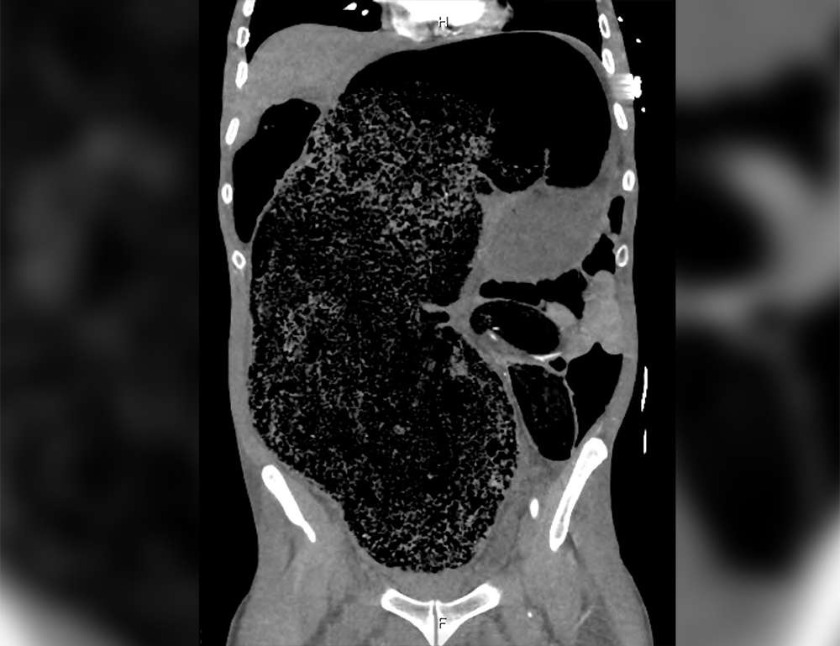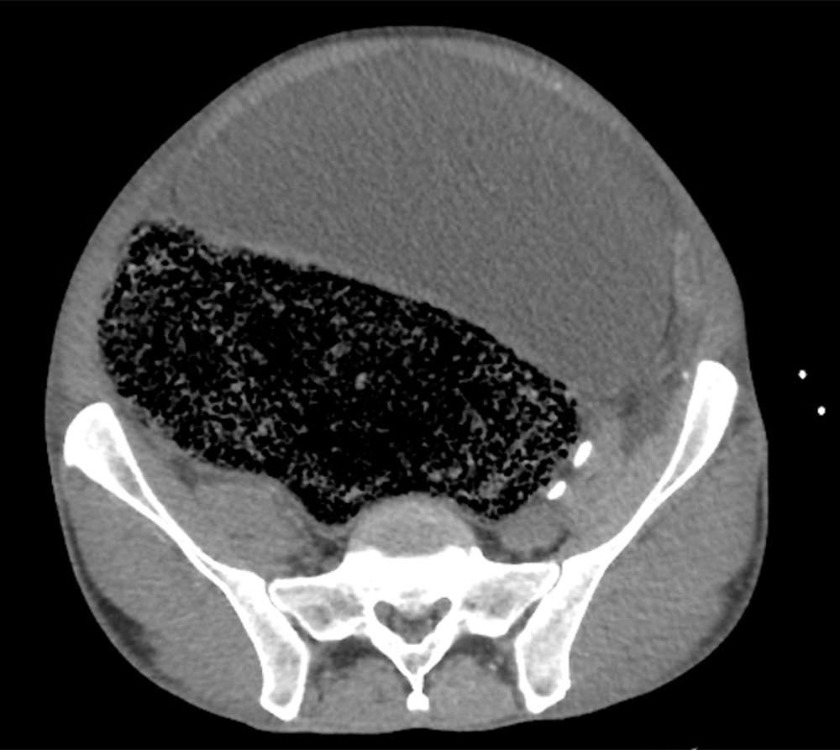A MAN came perilously close to death after suffering one of the most extreme cases of constipation ever recorded in medical history.
The 53-year-old first admitted himself to the emergency room after suffering three straight days of abdominal pain that had become progressively worse.
Not only was his abdomen visibly swollen but he was also suffering some nausea and, most shocking of all, had begun to experience pain in his right leg that had eventually led to a 24-hour period of partial paralysis.
According to the disturbing case report published in the British Medical Journal, doctors closely examined the leg and soon discovered there was no palpable pulse and that the limb was also cold to the touch.
An examination of the man's medical history offered little clues as to the problem; he had no history of drug taking or vascular disease.
It was only after a physical examination that the truth was revealed, with impacted stools discovered during a rectal examination.
A subsequent scan of his abdomen revealed the severity of the situation: he was suffering from an extreme case of faecal compaction.
 A scan of the constipated man's abdomen.
A scan of the constipated man's abdomen.But it was no laughing matter - the man was suffering from a life-threatening case of abdominal compartment syndrome.
The scan showed the gravity of the condition with the man so backed up with faecal matter it had distended his large intestine and put pressure on the right iliac artery, resulting in the leg pain and partial paralysis.
Doctors were left with little choice but to take him in for emergency surgery to remove the backlog of faecal matter and help ease the abdominal pressure.
The case report reads: "Significant faecal disimpaction was performed manually under general anaesthesia with approximately 2 Liters of faeces removed."
 Faecal matter putting pressure on an artery that resulted in partial paralysis.
Faecal matter putting pressure on an artery that resulted in partial paralysis.He spent the next four days in intensive care while it took him a total of 17 days to regain the use of his leg.
Unfortunately, doctors were unable to pinpoint the cause of the build-up.
They did, however, urge anyone suffering from constipation for an extended period of time to seek medical help rather than suffer in silence.

